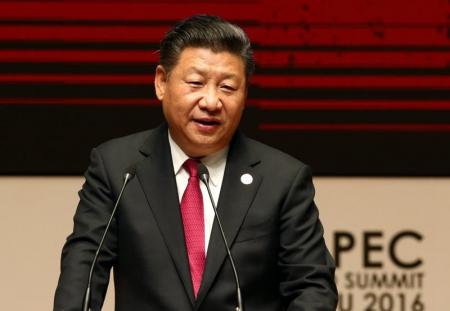
China’s parliament is set to hand President Xi Jinping free rein to rule the Asian superpower indefinitely, with potential dissenting votes offering the only suspense in Sunday’s historic vote.
The National People’s Congress is all but certain to approve a constitutional amendment that has stunned many in China, sparking an unusual bout of criticism that censors have scrambled to extinguish.
The move reverses the era of “collective” leadership and orderly succession that was promoted by late paramount leader Deng Xiaoping to ensure stability following the turbulent one-man rule of Communist China’s founder Mao Zedong.
Xi, 64, has consolidated power since taking office as general secretary of the Communist Party in 2012 – his most important title, which has no term limits but which his two predecessors both gave up after two terms.
He would have had to give up the presidency after the end of his second term in 2023, but he could now have a lifetime to push his vision of a rejuvenated China as a global powerhouse with a “world-class” military.
His rise has been accompanied by tighter restrictions on civil society, with the detention of activists and lawyers, and stricter limits on the already heavily controlled internet.
At the same time, he gained a measure of popularity among Chinese people through a relentless crackdown on corruption that has punished more than a million party officials, and sidelined potential rivals.
Daring abstentions?
While attention has focused on the term limits, the amendments also include major provisions that will engrave Xi’s eponymous political mantra in the constitution and hand the Communist Party an even larger role in the country’s affairs.
The legislation is expected to easily secure the two-thirds of votes needed to pass in the legislature, which has never voted down a Communist Party diktat in its half-century of existence.
But if any of the nearly 3,000 legislators are secretly unhappy about the move, they could cast a protest vote by abstaining.
While the voting is secret, analysts say there are probably ways to know how delegates vote.
“Some deputies who insist on Deng Xiaoping’s reform line will think that this constitutional amendment is a retrogression and abandons Deng’s legacy,” Beijing-based political commentator Hua Po said.
“They may vote against or abstain from voting to safeguard Deng’s political legacy,” he said.
Secret path
The Communist Party, which says the move merely aligns the presidency with the limit-free titles of party and military chief, claims “the masses” unanimously called for the removal of term limits.
But the proposal was kept secret until it was revealed in a state media report on February 25, a week before the legislature’s opening session.
The party later disclosed that Xi had presided over a meeting of the Politburo in September during which the leadership decided to revise the constitution.
The party then sought proposals and opinions, culminating in a decision in late January to introduce constitutional amendments at the NPC.
The surprise move triggered a backlash online, prompting censors to block phrases and words such as “I disagree” and “emperor” and the image of Winnie the Pooh, the cartoon bear to which Xi has been compared.
A revised and final version of the legislation was sent to delegations on Saturday, according to the official Xinhua news agency.
